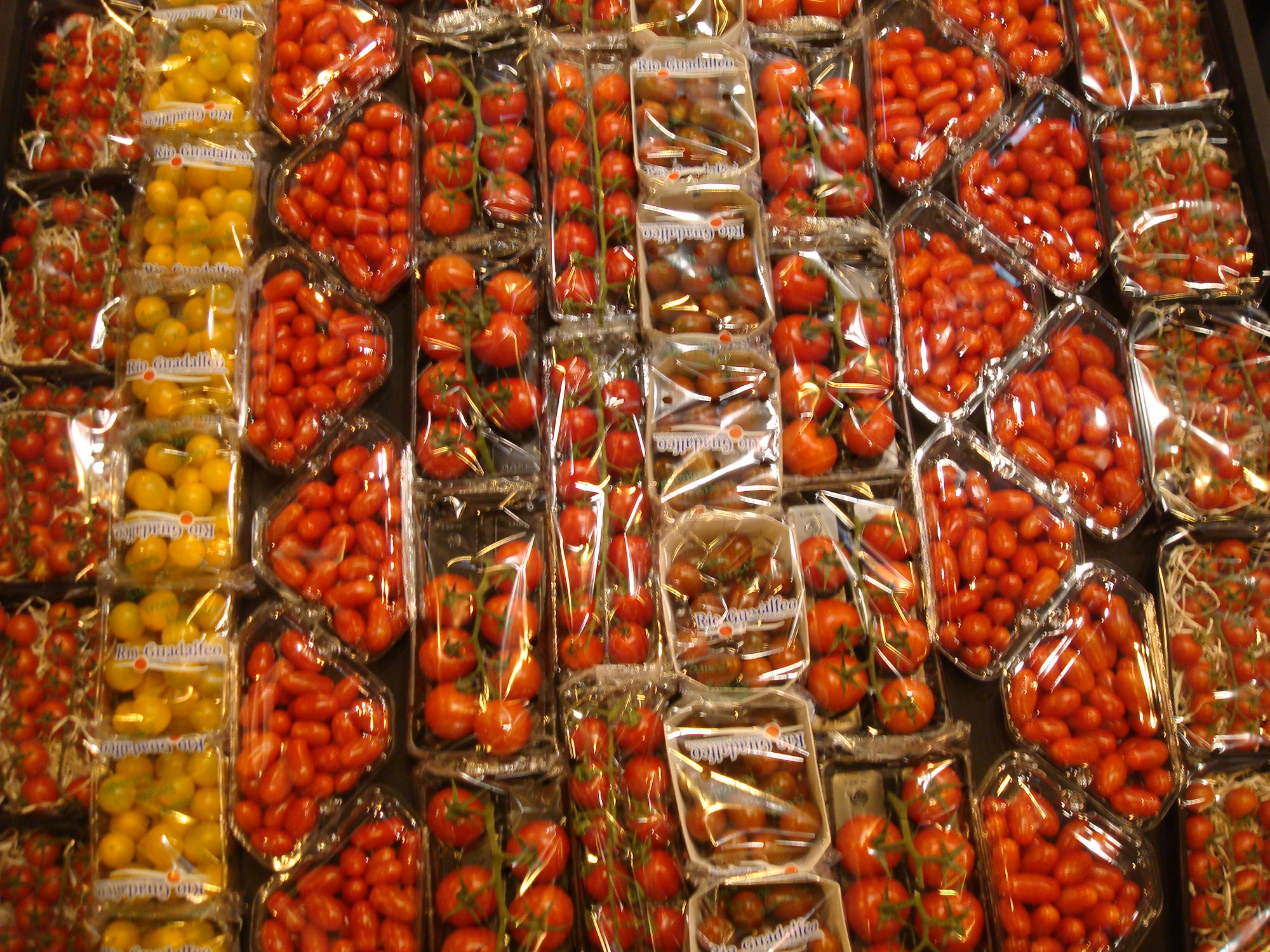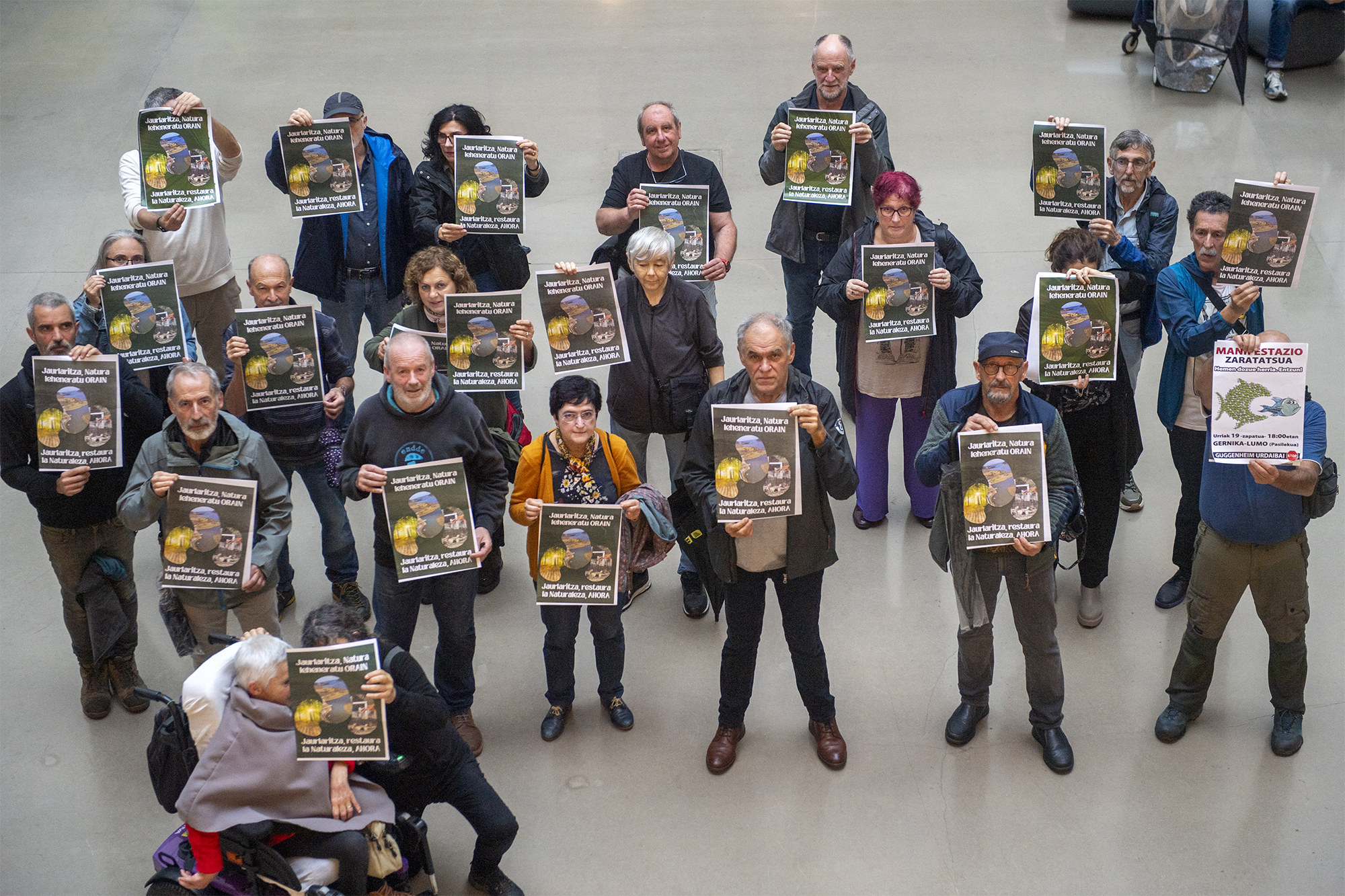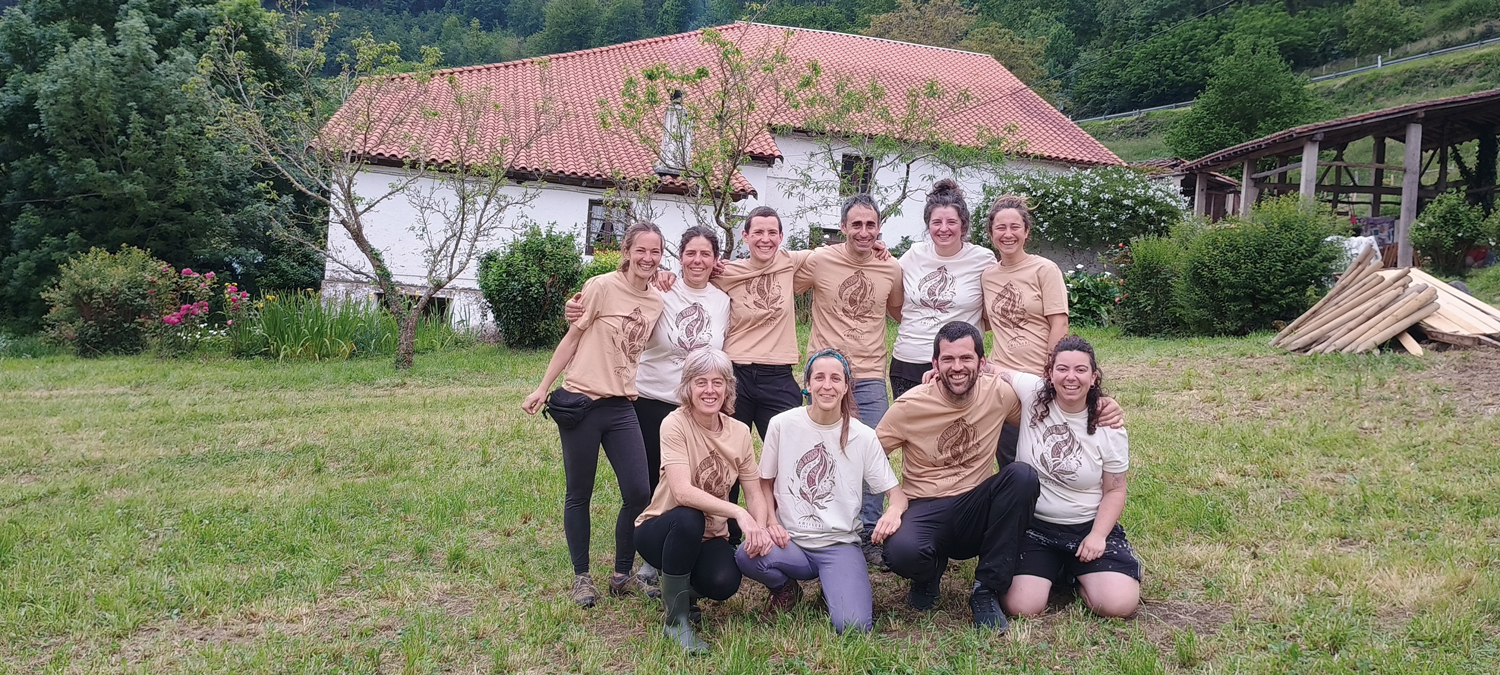Trade unions defend food sovereignty and agroecology in the collective initiative Elika Bilbao
- From 15 to 22 May, Elika Bilbao, a collective initiative for food sovereignty, is organising: Labore Bilbao, Ekologistak Martxan, Bizilur and GITE-IPES. In this respect, a joint declaration was issued by the trade union majority on 19 May. They point out that the right to healthy eating is the right and that the means to guarantee it is food sovereignty. The unions position themselves in favor of agroecology and "against a model of agribusiness that has expropriated thousands of lands and farmers and that requires continuous land artificialization".

Within the framework of the Elika Bilbo initiative, at noon on 19 May these unions met and stated that "we support food sovereignty" (the manifesto is full here). There they have been in favour of agroecology.
Trade unions state that healthy eating is a right: "By proclaiming that everyone has the right to a healthy diet, we speak of a right to reproduce and sustain lives. The role of baserritars and fishermen is to produce and offer food, not to produce cheap raw materials for the processing industry. It is a basic contribution to the construction of any people, as well as to articulate a more just and egalitarian society that responds to the collective needs of society".
Trade unions say that the way to guarantee the right to eat healthy is food sovereignty: "This policy proposal for the exercise of rights and healthy eating allows sustainable agriculture, livestock and fisheries, based on agro-ecological processes, which guarantee the accessibility of local and seasonal products to all people and which materialize in decent and fair working conditions in the production, storage, distribution and consumption chain."
"Without the ability to cultivate fertile land, there is no food sovereignty"
Trade unions denounce: "This choice for food sovereignty leads us to stand against a model that has inevitably expropriated thousands of land and peasants, and that requires the continued artificialization of the land. The fight for public and community land ownership is essential if we are to have the right and opportunity to cultivate land free from GMOs and agrotoxics. Without the possibility of cultivating fertile land, there is no food sovereignty."
Currently, the current intensive model in Euskal Herria is "totally collapsed": "It is essential to change direction, both in production models and in modes of consumption".
Trade unions for agroecology
The reasons for trade unions to opt for an agro-ecological model on the road to food sovereignty are:
- "This is the only model that guarantees the production of local food in decent working conditions," the unions say. They added that it strengthens territorial cohesion and the development of the local economy.
- Conservation of biodiversity and an environmentally friendly model. They remember that the industrial model produces one third of CO2 emissions.
- "It seeks a more just society, based on the commodification of communal lands and heritage, on the militarization of public communities and on the impoverishment and precariousness of migrant and racist workers who operate especially in the primary sector, which is not sustained by the exploitation and sack of the Global South".
- It is an autonomous model that can cope with the energy and eco-social crisis. You remember that the current food model is responsible for a quarter of the transport.
- "It incorporates the gender perspective and the decolonal look".
- "It puts life at the center and offers a better life for all living beings, increasing the ability to decide what and how we produce and feed here."
Trade unions call for agro-ecological public policies
Trade unions have pointed to the need to draw up a strategic plan within the eco-social transition, "with the aim of achieving a Basque food model. In this sense, we join the document proposed by Etxalde “Food system and road to sustainable agricultural production”.
They highlight that in local public administrations public policies can be made, which will promote local territorial production.
They point out that an attempt will be made to influence the contracting of documents by the administrations so that "priority will be given to projects for the production and processing of local food products implemented in the Basque territory".
They also call for a monitoring of the situation of wood in order to know the "working and living conditions that the main food model provides to workers". in this sense, state that "many of these workers are migrated and racist and are subject to situations of special vulnerability of the black economy, as a consequence of the current law on foreigners of the Spanish State".
Elika Bilbao
Elika is a collective initiative promoting food sovereignty in Bilbao. At the same time, it aims to promote responsible and transformative consumption in the field of food, ensuring that local and agro-ecological producers produce and sell food. Different decentralised initiatives, organised by different groups, are taking place this week in the following neighbourhoods in Bilbao: Deusto, Casco Viejo, Miribila, Santutxu and San Francisco.
The closing event will be held at Plaza Nueva on 22 May at 13:00. It will read a manifesto in which agents of all kinds in Bilbao will show their support for food sovereignty. This manifesto underlines the need to promote indigenous agriculture, commitment to ecological sustainability, the defence of territory and culture, the promotion of short marketing channels and the strengthening of the transforming social economy.




















